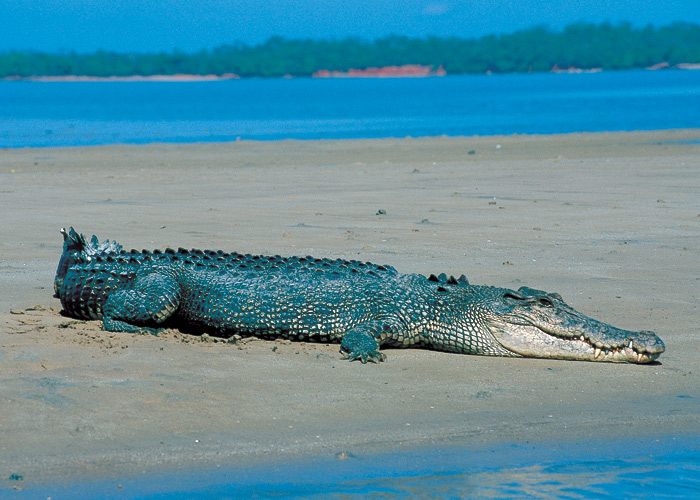Science News
Surfing Crocs
June 7, 2010

There’s been a lot in the news about the transoceanic voyages of birds and sea turtles, but crocodiles?
A new study, published in the Journal of Animal Ecology, found that the estuarine crocodile, a noted poor swimmer, surfs its way around islands in the South Pacific.
For years researchers were puzzled. How could this creature, the largest living reptile in the world, occupy islands so isolated from each other? And why, despite occupying regions as far apart as East India and Fiji or southern China and North Australia, has the species never diversified?
To investigate these questions, an Australian research team (which included the late Steve “The Crocodile Hunter” Irwin) tagged 27 adult estuarine crocodiles with sonar transmitters and used underwater receivers to track their every move over 12 months.
According to an article in today’s Nature:
They found that eight crocodiles undertook a total of 42 long-distance journeys of more than 10 km per day. In 96% of these trips, the reptiles travelled with the current flow. In contrast, the crocodiles were equally likely to travel with and against the current flow when making short journeys.
Surfing the ocean’s surface currents, the crocodiles could voyage from one oceanic island to another. “This not only helps to explain how estuarine crocodiles move between oceanic islands, but also contributes to the theory that crocodilians have crossed major marine barriers during their evolutionary past,” says Hamish Campbell, PhD, one of the authors of the study.
And how do they know how to read the tides? Perhaps they use magnetic cues to know when “surf’s up," says author Craig Franklin, PhD, in Nature:
It is not clear whether this behavior is learned or inherited, says Franklin. He says that correlations can be drawn between the migratory behavior and cognitive abilities of crocodiles and birds, because the former are more closely related to the latter than to other reptiles. Previous studies have shown that both animals use magnetic cues to navigate.
So if birds and crocs share such tremendous navigational capacity, maybe it’s not such an insult to be called a “bird brain”? Well, not if you’re the largest living reptile surfing your way to the nearest island…
Image courtesy of Tourism NT